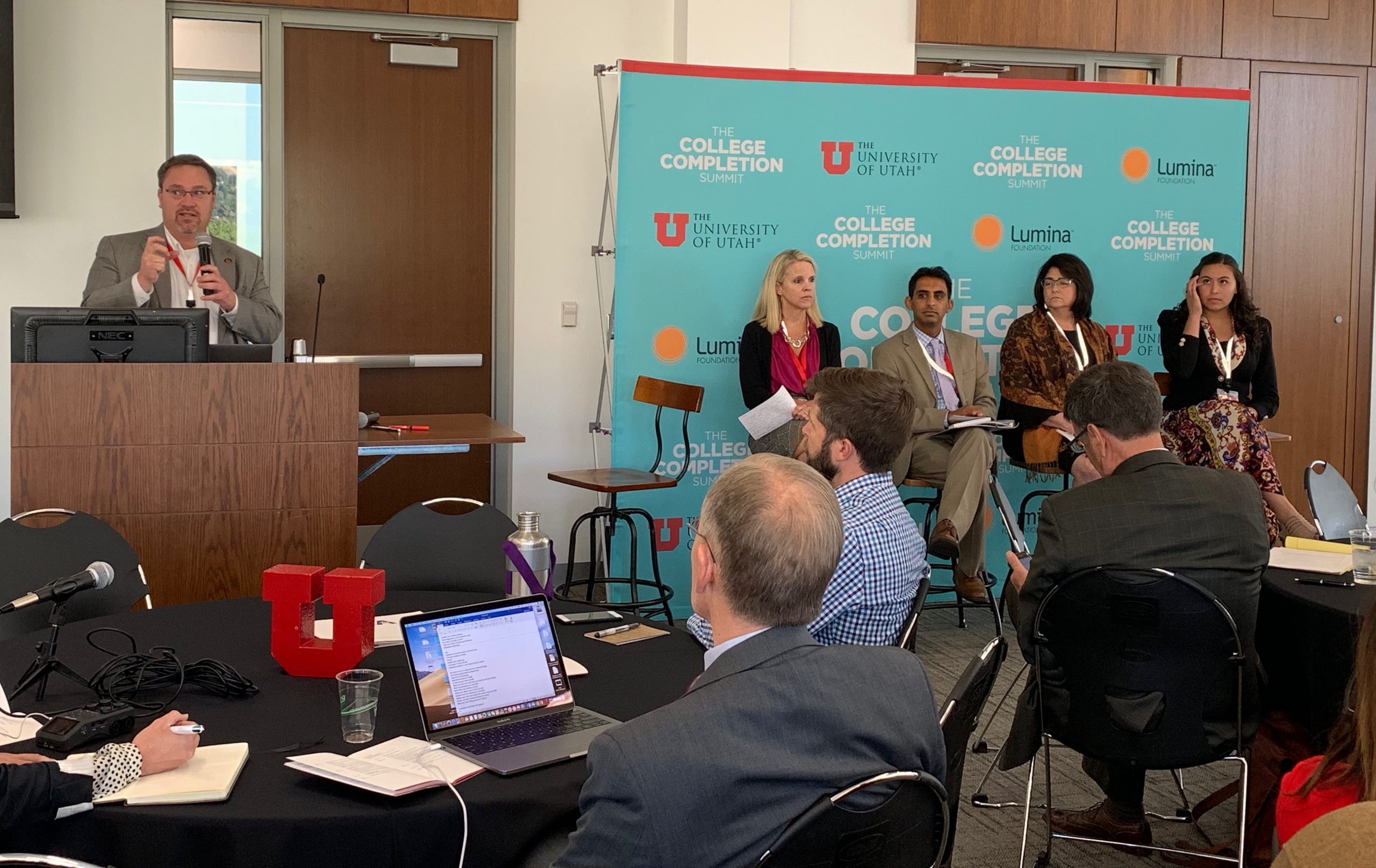Editor’s note: This is one in a series of stories about The College Completion Summit held at the University of Utah on Sept. 30-Oct. 1, 2019. The title of this panel was “Completion and public perception.” Panel members included: Marjorie Cortez, higher education reporter, Deseret News; Mushtaq Gunja, vice president and chief of staff, American Council on Education; Kim Parker, director of social trends research, Pew Research Center; and Joscelyn Guzman, student representative, Leadership Enterprise for a Diverse America. Chris Nelson, communications director at the University of Utah, moderated the discussion.
Asked by pollsters whether a college degree is valuable, Americans answer with a resounding “yes.” But those same polls also reveal a darker view.
“There’s a growing sense of discontent about the role colleges and universities are playing in this country,” said Kim Parker, director of social trends research at the Pew Research Center, who spoke about public perception during the College Complete Summit hosted by the University of Utah and Lumina Foundation.
Only 50% of Americans say that colleges and universities have a positive effect on the country, down from 63% just four years ago—“a pretty dramatic change in a fairly short period of time,” Parker said. And even though, on average, students with a bachelor’s degree will make $1.1 million more over their lifetime than those without a degree, only 45% of Americans think colleges are successfully preparing students for specific jobs, according to polling by the American Council on Education, said Mushtaq Gunja, ACE’s vice president and chief of staff.
ACE has also conducted a dozen focus groups of parents of perspective college students. “The most shocking takeaway,” said Gunja, “was that the public does not believe we have their students’ best interests at heart. . . One thing that came up over and over was that people thought that we were intentionally keeping students on campus longer so that we could take their tuition.”
Some of the disillusionment about higher ed is along partisan lines. Although both Republicans and Democrats were worried about rising college costs—often assuming that more students take out student loans than is actually the case, and at higher amounts—Republicans are more likely to complain that colleges are too liberal. Both Republicans and Democrats are leery of the college admission process, but Democrats were concerned that the process is rigged towards legacy admissions, while Republicans are more likely to take issue with affirmative action admission policies that take race and ethnicity into consideration.
Public perception affects how Latinx and African-American students view themselves, noted panelist Joscelyn Guzman, a Claremont College graduate student who is part of Leadership Enterprise for a Diverse America. “There’s a perception that certain groups don’t value college degrees” and that perception becomes internalized in the students and their parents. She understands, she said, why students drop out of college. “I feel the Imposter Syndrome on a daily basis,” she said of herself.
Schools in Utah’s higher ed system “are having to take a really hard look at themselves about whether they’re meeting students’ needs,” said Deseret News reporter Marjorie Cortez. “I think the key to telling that story is really understanding what students are up against”—the intense anxiety of a post-Columbine generation that worries not just about school shootings but about food insecurity and rising housing costs. “In a lot of ways,” said Cortez, “I feel like every kid’s kind of a first-gen kid now.”
